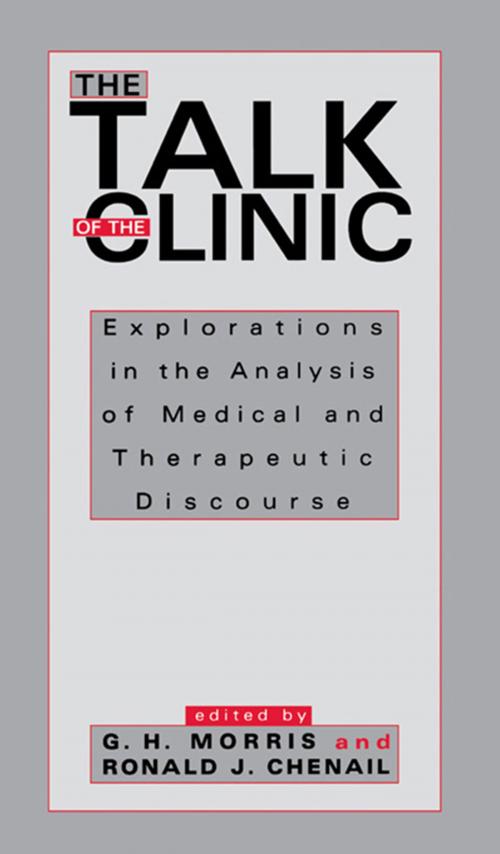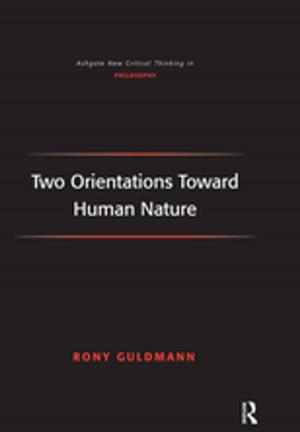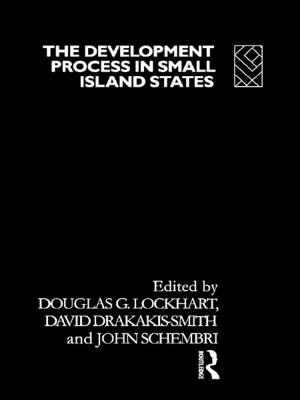The Talk of the Clinic
Explorations in the Analysis of Medical and therapeutic Discourse
Nonfiction, Reference & Language, Language Arts, Communication| Author: | ISBN: | 9781136690341 | |
| Publisher: | Taylor and Francis | Publication: | November 5, 2013 |
| Imprint: | Routledge | Language: | English |
| Author: | |
| ISBN: | 9781136690341 |
| Publisher: | Taylor and Francis |
| Publication: | November 5, 2013 |
| Imprint: | Routledge |
| Language: | English |
This collection of original papers by scholars who closely analyze the talk of the clinic features studies that were conceived with the aim of contributing to clinical practitioners' insight about how their talk works. No previous communication text has attempted to take such a practitioner-sensitive posture with its research presentations. Each chapter focuses on one or more performances that clinical practitioners -- in consort with their clients or colleagues -- must achieve with some regularity. These speech acts are consequential for effective practice and sometimes present themselves as problematic.
Rather than calling for research to be simplified or reoriented in order for practitioners to understand it, these authors interpret state-of-the-art descriptive analysis for its practical import for clinicians. Each contributor delves deeply into clinical practice and its wisdom; therefore, each is positioned to identify alternative clinical practices and techniques and to appreciate practitioners' means of performing effectively. When reflective practitioners encounter these new pieces of work, productive alterations in how their work is done can be stimulated. By reading this work, reflective practitioners will now have new ways of considering their talk and new possibilities for speaking effectively.
The volume is uniquely constructed so as to engage in dialogue with these reflective practitioners as they struggle to articulate their work. A practical wisdom-as-research trend has recently emerged in the clinical fields stimulating these practitioners to explore new and more informative ways -- communication and literary theory, ethnography, and discourse analysis -- to express what they do in clinics and hospitals. With the studies presented in this book, the editors build upon this dialectical process between practitioner and researcher, thus helping this productive conversation to continue.
This collection of original papers by scholars who closely analyze the talk of the clinic features studies that were conceived with the aim of contributing to clinical practitioners' insight about how their talk works. No previous communication text has attempted to take such a practitioner-sensitive posture with its research presentations. Each chapter focuses on one or more performances that clinical practitioners -- in consort with their clients or colleagues -- must achieve with some regularity. These speech acts are consequential for effective practice and sometimes present themselves as problematic.
Rather than calling for research to be simplified or reoriented in order for practitioners to understand it, these authors interpret state-of-the-art descriptive analysis for its practical import for clinicians. Each contributor delves deeply into clinical practice and its wisdom; therefore, each is positioned to identify alternative clinical practices and techniques and to appreciate practitioners' means of performing effectively. When reflective practitioners encounter these new pieces of work, productive alterations in how their work is done can be stimulated. By reading this work, reflective practitioners will now have new ways of considering their talk and new possibilities for speaking effectively.
The volume is uniquely constructed so as to engage in dialogue with these reflective practitioners as they struggle to articulate their work. A practical wisdom-as-research trend has recently emerged in the clinical fields stimulating these practitioners to explore new and more informative ways -- communication and literary theory, ethnography, and discourse analysis -- to express what they do in clinics and hospitals. With the studies presented in this book, the editors build upon this dialectical process between practitioner and researcher, thus helping this productive conversation to continue.















